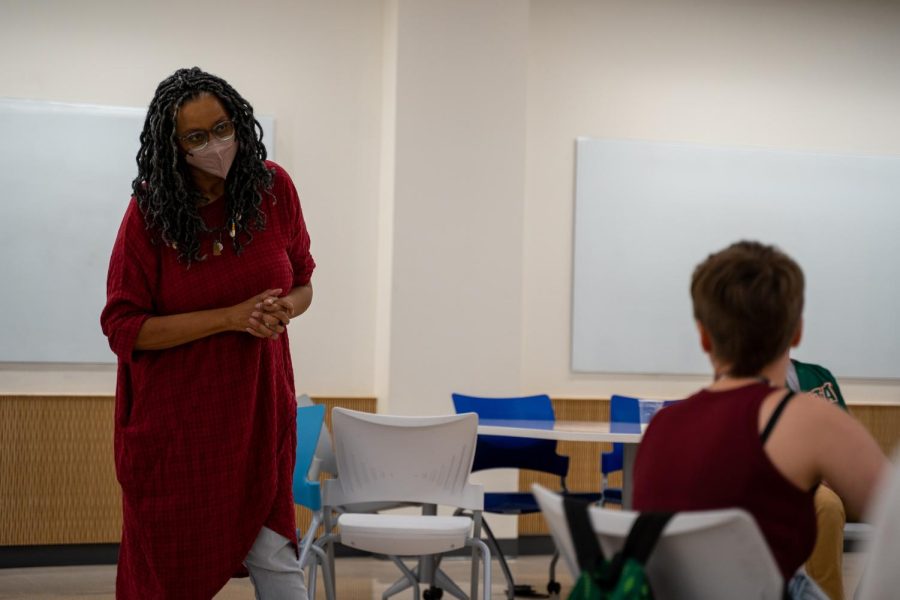CNS hosts anti-racism workshop for STEM majors to foster positive environment
February 13, 2023
The College of Natural Sciences held its first anti-racism workshop for STEM majors on Thursday to promote a more inclusive environment within the field, led by Diane Rhodes, a social work senior lecturer.
The workshop series, funded by a community transformation grant from the Office of the Executive Vice President and Provost, gives students an opportunity to learn about anti-racism and how to be anti-racist in STEM. At the first workshop, Rhodes led an intimate discussion on stereotyping, inclusion and creating welcoming environments in STEM fields.
“When you look at the historical context of STEM, it definitely has a history of exclusion,” said Tepera Holman, the assistant dean for diversity and student programs. “We wanted to create workshops for students, for individuals, who are really interested in engaging with this content that shows a different side of science.”
Rhodes said students generally learn about the work of primarily white men in STEM fields, meaning they become the figures students look up to. This presents a key problem that keeps people out of STEM entirely because they don’t see representation of people who look like them to aspire to.
“There have been times in which science has been used as a way of excluding others,” Holman said. “I hope the story is that science is a way of including everyone it brings together to the table.”
Ivana Tieu, a neuroscience senior who attended the workshop, said she learned about it by reading the CNS newsletter.
“It caught my eye because nothing has been sent regarding anti-racism within my four years at UT, so I was excited to see that,” Tieu said.
Tieu said she wanted to learn about breaking down racial structures and how to take away some of the implicit biases she may hold.
Biases form by example, Rhodes said, so modeling the behavior you want to see is an important tool for change.
Rhodes also said students can help create a more inclusive environment by building bridges with each other, which starts by simply recognizing that a human has value because they are on this earth.
The remaining three workshops will be held on Feb. 16, Feb. 27 and Mar. 20.
“It’s very easy to just stand on the sidelines and go, ‘Oh my gosh, there’s racism in STEM,’” Rhodes said. “What do we do individually to not just be standing on the sidelines complaining about something that’s bad?”












